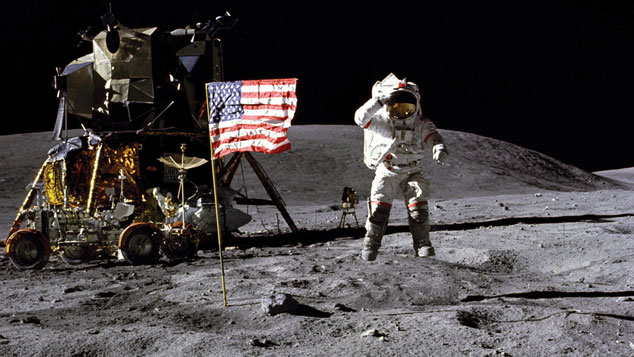
We think of the space race mainly as a Cold War contest to get to the moon, and one which was mostly consigned to the history books by the middle of the 1970s. But in fact, the real space race may be just about to begin – and that will be the contest to exploit its commercial potential. We may, quite literally, be heading for new worlds.
The space race of the 1960s and 1970s provided plenty of excitement, and certainly enriched our understanding of the universe. But commercially, it turned out to be a bit of a dead-end. Aside from communications and weather satellites, space didn’t create many new industries – and with fibre-optic internet cables providing most of the world’s communications needs, even telecoms and broadcasting satellites are looking fairly old hat (no one needs them to watch Netflix or call a friend in Australia).
That may be about to change, however. This month, the United States quietly passed the Space Act 2015, which allows private companies to claim ownership of assets in space. For the first time, mineral rights can be secured outside of earth’s orbit. Of course, it remains to be seen how that works out in international law.
There is an existing treaty that prevents any one country claiming territory in space, designed to prevent the US colonising Mars and China grabbing Venus in much the same way European powers grabbed chunks of America 500 years ago. The new law would, however, allow companies to claim mineral rights and enforce those in American courts – which is a big step forward, even if it does not solve the whole problem.
The smart money heads to space
At the same time, some seriously smart money is going into space development. Jeff Bezos, the founder of Amazon, and following the death of Steve Jobs perhaps the smartest entrepreneur on the planet, has set up Blue Origin to launch private space vehicles. Elon Musk, the billionaire founder of PayPal and Tesla, has set up SpaceX as one of the biggest private space plays. Paul Allen, the co-founder of Microsoft with Bill Gates, has poured a chunk of his money into Stratolaunch Systems, which is developing a new type of rocket.
Google, which has yet to see a technology it does not want to get involved with, has backed the asteroid-mining company Planetary Resources. There isn’t an i-Rocket yet, but it would be no great surprise if Apple was working on one (which will of course be beautifully designed, eye-wateringly expensive, and will only fly to Apple-designed planets). And of course there is always our own Sir Richard Branson, although it remains to be seen whether the Virgin spacecraft ever lives up to its hype.
There will be some failures along the way, and probably more of them than there are successes, but that is a serious collection of companies, run by some of the cleverest tycoons in the world. It is possible that Bezos, Allen and Google have got it wrong in believing that there are commercial possibilities in space – but it is a lot more likely that they have got it right.
Entrepreneurs and the final frontier
In reality, for any new technological or geographic frontier to open up you need two things – secure property rights, and clever entrepreneurs. We have a big recorded music and publishing industry because copyright law means you own what you create. If we didn’t, we probably wouldn’t have either. The same is true of the pharmaceutical industry – patent law makes it worthwhile for drugs companies to spend billions on new medicines. It is of course understandable that we don’t want big countries grabbing whole planets or solar systems.
But if you can’t own anything once you get outside the earth’s atmosphere, that is surely too restrictive. It should surely be possible to own mineral rights, for example, or to allow pioneers to take control of defined territories – much as the American homestead acts of the 19th century encouraged pioneers to open up and develop the West of the United States.
Entrepreneurs certainly seem willing to step into that market. Of course, we don’t quite know what the space industries will be. It might be minerals, such as rare earths that are hard to mine on this planet but plentiful on some of the bigger asteroids. It might be opening up whole new colonies for adventurous migrants. It might be medical, or communications technologies that become possible in space. No one can say for certain.
But so what? We didn’t know what commercial applications computing might have when the first micro-processors were designed. When electricity was first being commercialised, no one was thinking about cinemas or washing machines, but they all came along in time, and turned into huge industries as the technology became established.
The chances are that the space industries will emerge over time in much the same way. The ability to put people on the moon was just a first, and perhaps, in retrospect, a minor step. The creation of property rights, and the involvement of entrepreneurs could turn out to be far more significant – and if it is, the real space race will only just be starting. Within a decade it could become the next great commercial frontier.